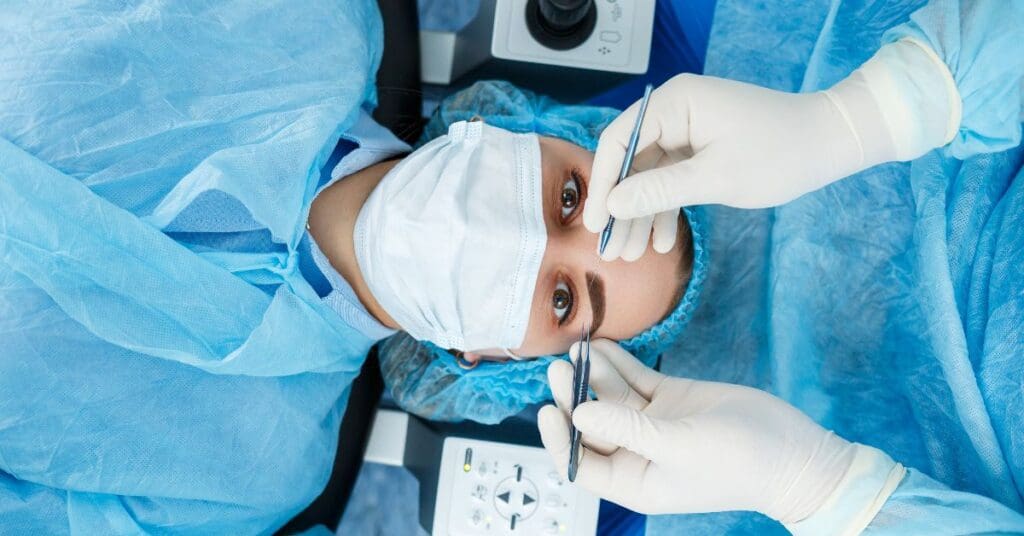Who is Not Suitable for Laser Eye Surgery?
Laser eye surgery, often seen as a quick fix for those tired of glasses and contact lenses, is not suitable for everyone. While the benefits of laser eye surgery improved vision, freedom from corrective lenses, and enhanced quality of life are appealing, every person is not a good candidate.
Understanding Laser Eye Surgery
There are two common types:
LASIK (Laser-Assisted in Situ Keratomileusis)
- Creates a flap in the outer cornea layer
- Reshapes the cornea using a laser
- Reattaches the flap, which heals within days
PRK (PhotoRefractive Keratectomy)
- Removes the entire outer cornea layer
- Reshapes the cornea with a laser
- The layer regenerates over several days
- PRK is preferable for those with thin corneas
In both procedures, approximately 90% of patients achieve vision between 20/20 and 20/40, without glasses or contacts. They both correct nearsightedness, farsightedness, and astigmatism.
What Makes an Eligible Patient
- Good overall health – Chronic conditions like high blood pressure and diabetes must be well-controlled.
- Stable vision – Prescriptions for glasses/contacts should remain stable for a year.
- Healthy eyes – No eye diseases like cataracts, glaucoma, or keratoconus (cone-shaped cornea), or chronic infections should be present.
- Age – Candidates should be over 18.
- Corneal thickness – Adequate thickness is necessary for safe reshaping
A comprehensive eye exam, corneal mapping, and measuring pupil size are tests that must be conducted to determine if laser eye surgery is right for you.

Identifying Risk Factors
Health Conditions:
- autoimmune disorders: lupus, rheumatoid arthritis
- poor eye health: severe dry eye, chronic eye infections, corneal disease, extremely thin corneas
Eye Characteristics:
- Very thin corneas, extreme hyperopia, and irregularly shaped corneas pose complications.
- A keratoconus diagnosis complicates reshaping during laser surgery.
Patients and doctors should thoroughly discuss these factors before proceeding with surgery.
Weighing the Lifestyle
After surgery, participating in certain activities could slow the healing process.
Avoid:
- Sports such as football, basketball, wrestling, or swimming due to potential trauma or infection
- jobs or activities with high exposure to dust and chemicals
Vision improvements occur within days or a few months. However, some patients might still require glasses for specific tasks. Assess your current lifestyle to determine if you are willing to undergo surgery and the healing process.
Alternatives for Ineligible Candidates
If you are not a good candidate, there are several alternative vision correction options:
LASEK: Thin outer cornea layer is moved to the side and repositioned after surgery.
Phakic Intraocular Lenses (IOLs): Implantable contact lenses that work alongside the natural lens to correct vision.
Refractive Lens Exchange: Replacing the eye’s natural lens with an artificial one.
Advancements in Non-Surgical Methods: Conductive keratoplasty, wavefront-guided LASIK, and innovative contact lens designs offer promising choices.
For more information on laser surgery substitutes visit:
Alternative Refractive Surgery Procedures – American Academy of Ophthalmology
Posterior Capsulotomy – The Eye Center
Intraocular Implants (IOLs) – American Academy of Ophthalmology
Knowing who isn’t a good fit for laser eye surgery is as important as understanding its benefits. No matter your eligibility, prioritizing your vision health is always a great choice. If you want to know whether laser eye surgery is right for you, contact The Eye Center, with locations in Huntsville and Madison, at 256-705-3937.

